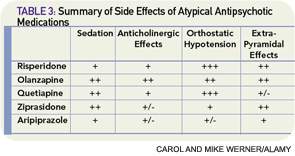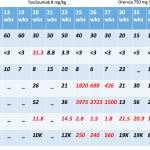Antidepressants
The use of antidepressants may be considered when patients report significant depressive symptoms associated with corticosteroid therapy. It is important to note a few issues when choosing a medication. First, any time an antidepressant medication is initiated, it is important to screen for a history of mania, such as by using the screening question: “Have you had periods of feeling so happy or energetic that your friends told you were talking too fast or that you were too ‘hyper’?”34 Second, many of the antidepressants are metabolized through the cytochrome P450 iso-enzyme family and may have relevant potential drug–drug interactions. Third, especially in elderly patients, antidepressants can be associated with adverse effects.


